Key takeaways:
- The Asia Pet Fair opened in Shanghai on 20 August as brands tap into the booming “pet economy” in China.
- Brands such as NetEase Yanxuan, CHAGEE and Tmall all launched campaigns to resonate with current and aspiring pet owners.
- From angles of health, companionship and responsibility, the campaigns try to provide “emotional value” to pet-loving young people.
With the 27th Asia Pet Fair underway in Shanghai, from robot dogs to a pet fashion show, brands, pet-related or not, are trying to leverage the spotlight on these companions. The pet economy in China has continued to grow as people seek “emotional value”, not necessarily through romance or family, and pets are one of the alternatives for young people in China.
For brands that are not known for making pet products, it is a great way to tap into the massive appeal of pets
For brands that are not known for making pet products, it is a great way to tap into the massive appeal of pets, whether through new products or campaigns. Here are some of the highlights from this year.
Getting steamy
NetEase, the Chinese tech company best known for its 163 music platform and video games, brought its lifestyle brand NetEase Yanxuan (网易严选, lit. curated by NetEase) to the fair.

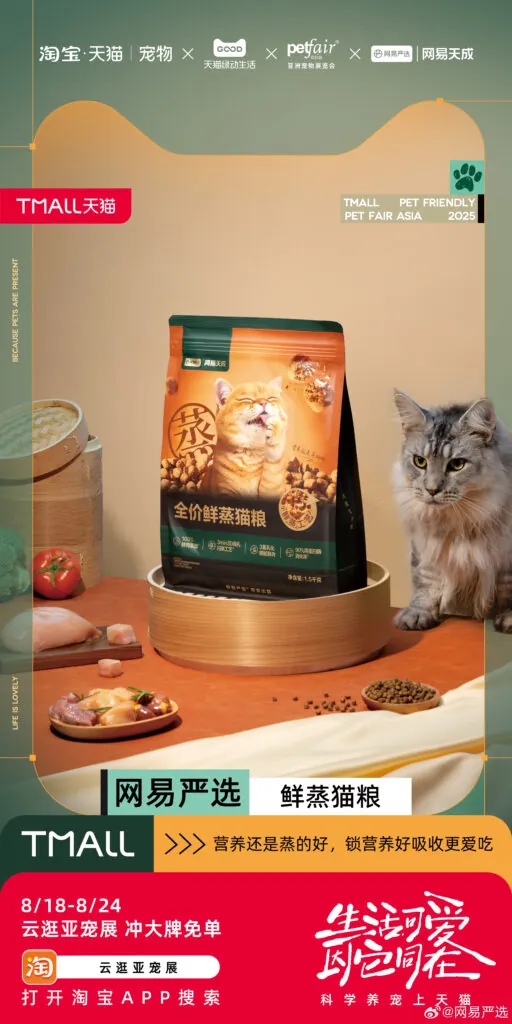

Not only did it showcase its latest pet food innovation, but it also built a “check-in” (打卡) spot for photo opportunities. The latest offering is “freshly steamed” pet food, made with cutting-edge technology designed not only to provide nutritious meals but also to support pets’ digestive systems.
NetEase’s latest offering is “freshly steamed” pet food, made with cutting-edge technology
To reinforce its steamed theme, NetEase brought a huge steamer installation to the Pet Fair, providing photo opportunities for visitors and making the NetEase Yanxuan booth a popular destination. The brand also launched livestreams on both Douyin and Tmall for online participation.
Season of pets
In late August, the “new Chinese-style” tea chain, CHAGEE, launched its “pet-friendly” season of 2025, almost exactly one year later. This year, the tea chain launched a four-pronged campaign for both online and offline.
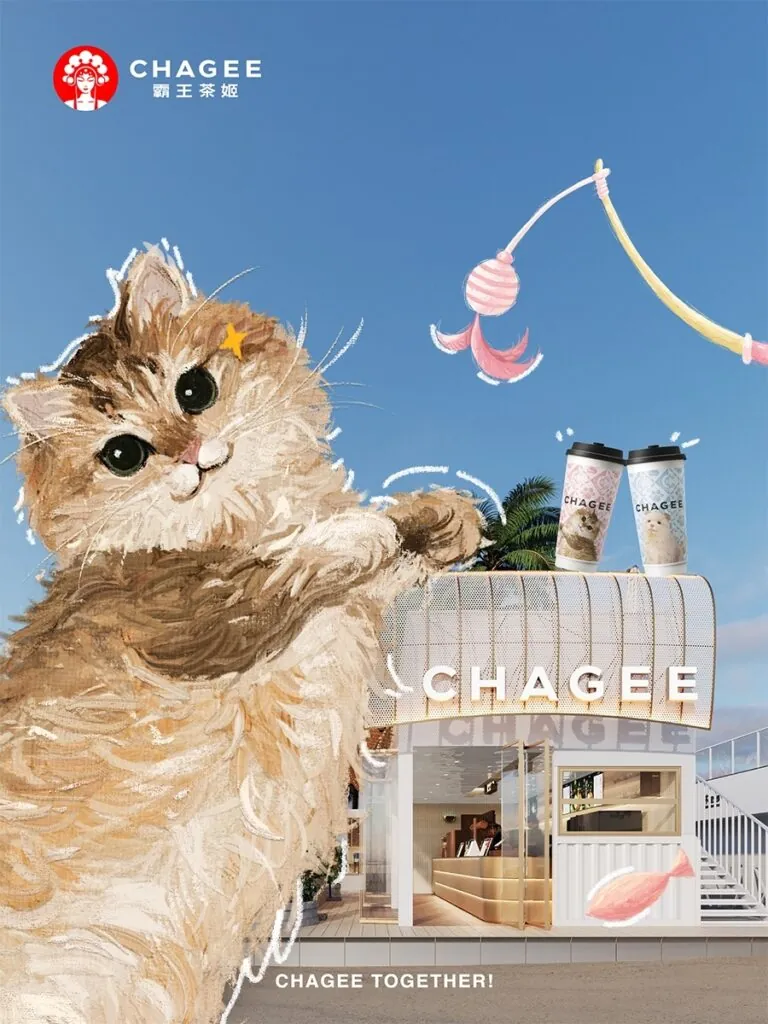

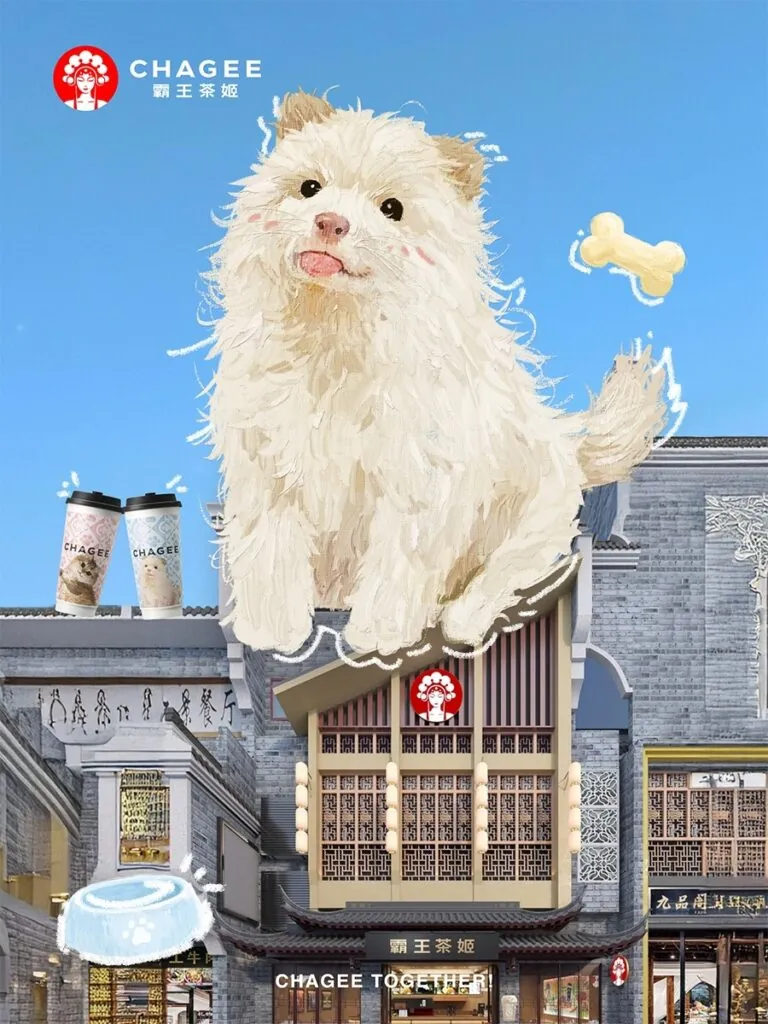
With a central theme of “accompaniment”, CHAGEE brought in-store experiences, collaborations with charities, exclusive merch releases and user engagement to provide social interactions and raise awareness of animal protection.
CHAGEE launched a free dairy cream giveaway for pets at 135 locations across China. 20 CHAGEE branches also have a wall for photo opportunities. There is merch such as fridge magnets and customisable cups, where you can upload pictures of your pet to print on. With its WeChat Mini Program, users can exchange in-app credits for 100kg of pet food at rescue stations.



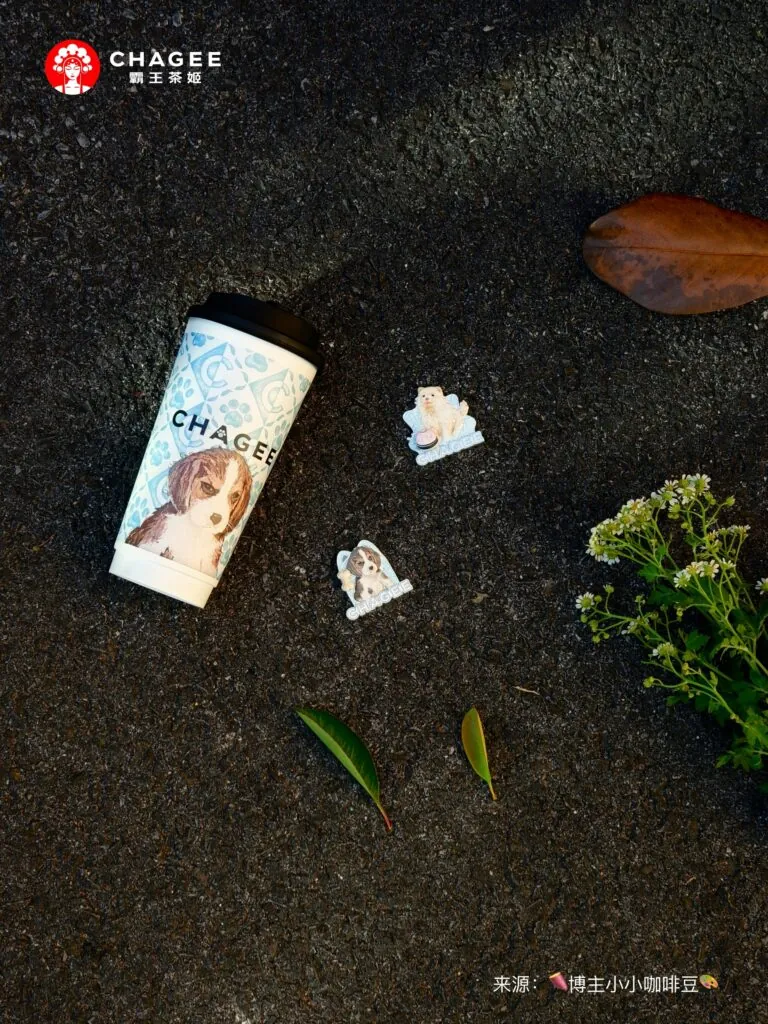
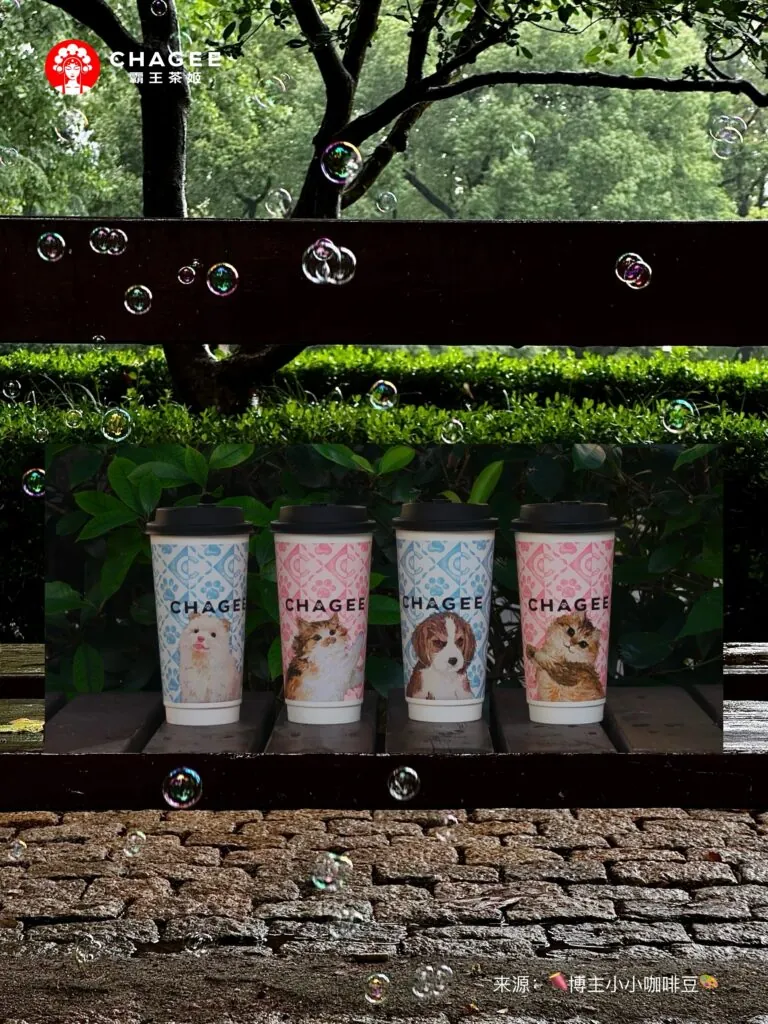
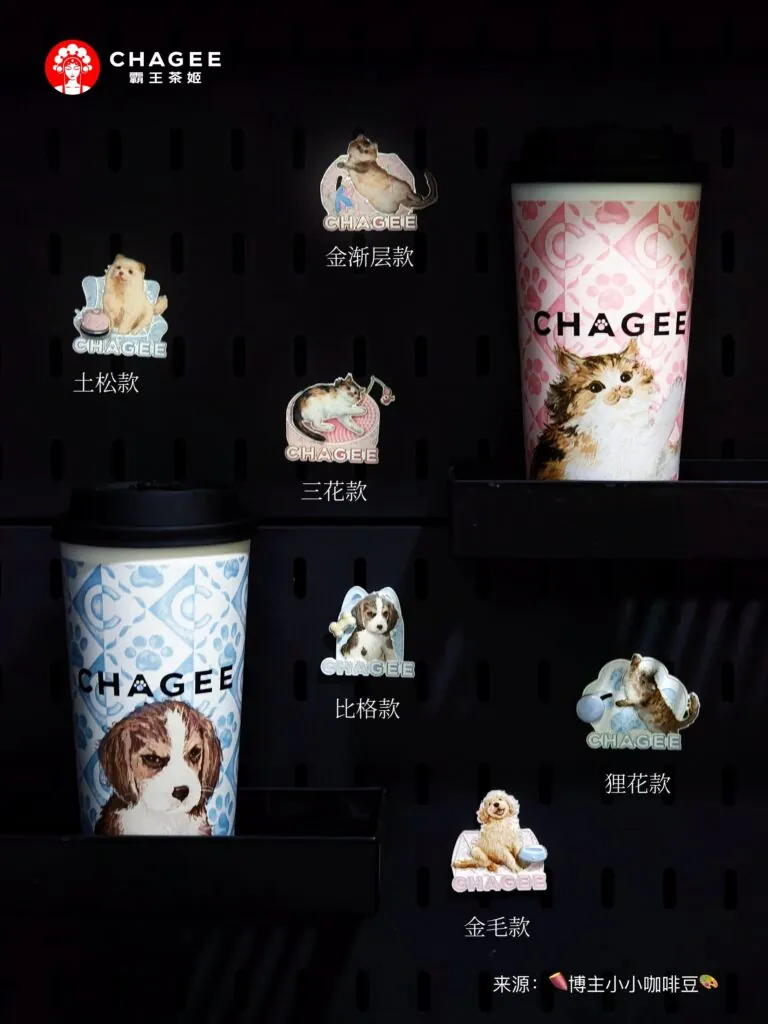
At the Asia Pet Fair. CHAGEE hosted adoption events for visitors to encourage adoption. CHAGEE has been opening pet-friendly branches since 2023 and started its first pet-friendly month last year.
Are you sure you want a pet?
Like CHAGEE, Tmall, also took the charity path as its step into the pet economy. However, the Alibaba-owned e-commerce giant took a subversive route by “discouraging” pet ownership.
The context is that with the current pet boom, people are exposed to too much “seeding” for pets and Tmall has sought to discourage potential impulse buys driven by either fear of missing out or sheer cuteness from pet videos. When heads cool, these impulse decisions or adoptions may lead to abandonment, sometimes repeatedly.


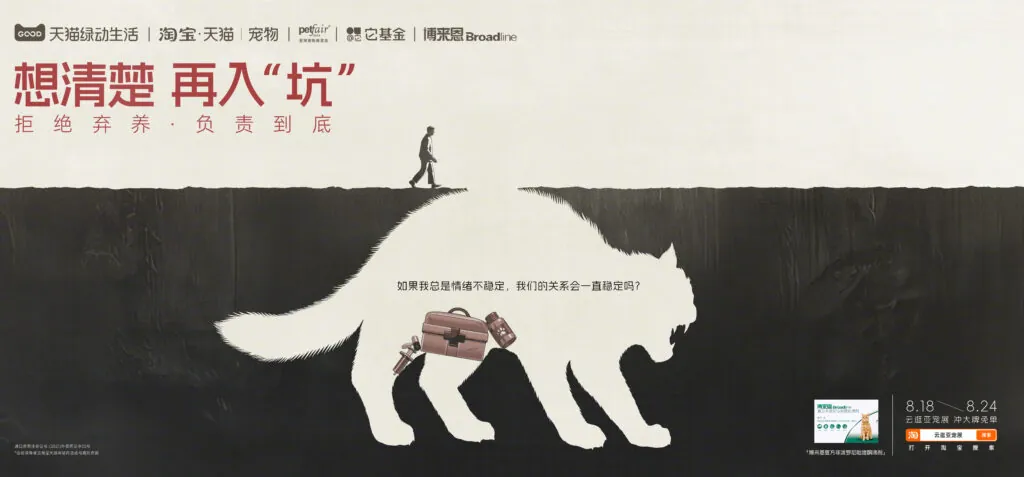



According to the “2023-2024 Pet Industry White Book”, there are approximately 100 million stray cats and dogs, and over 75% of stray animals are the result of human abandonment. With a slogan urging people to “think it through” before owning a pet, Taobao and Tmall, along with 17 pet product brands, are trying to curb unprepared pet-keeping.
Using a visual pun of a pet-shaped “pit”, the campaign poster plays on the idea of “入坑” (really getting into something, but lit. entering a pit). Tmall asks viewers whether they are ready for the potential bad behaviours and destruction that can come with pets, and whether they are prepared to look after them for their entire lives. The key message is to reject “pets as entertainment”.
As the pet economy continues to grow, pet-keeping is becoming part of everyday life for many young people in China. Brands, pet-related or not, are tapping into the lifestyle sector and trying to leverage the “emotional value” in marketing. Pets are just as important as messaging aimed at romance, family or the recently buzzing “interest” trend. However, like with family or romance, a resonating message can’t be only “buy”. Health, companionship, and responsibility were some of the innovative angles from brands at the Asia Pet Fair this year, and we can expect to see more creative pet-based campaigns in the future.
Need to boost your China strategy? Dao Pro delivers bespoke insights on marketing, innovation, and digital trends, direct from Chinese sources. Find out more from our Dao Strategy Team here.









